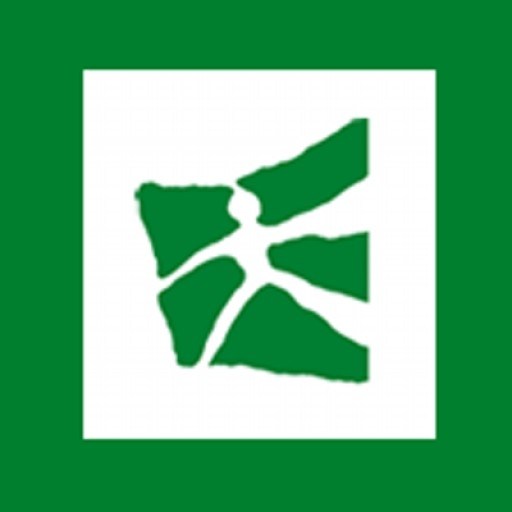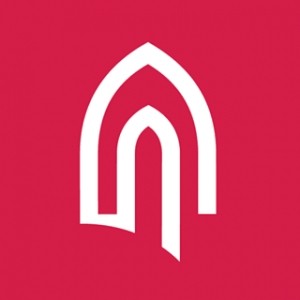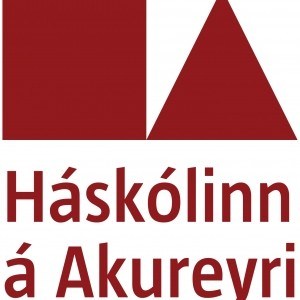Globalisation is a highly influential force that is not just advancing the interrelatedness between nation states, but also redefining organisations, institutions, and the everyday lives of millions of individuals. In professional contexts, this manifests itself as higher mobility requirements for employees, for example. In fact, mobility and intercultural experience are fast becoming must-have strategies for professional careers. Societies themselves are changing, too, as they find themselves increasingly characterised by their levels of diversity and heterogeneous ways of living.
This raises the question for social, political and economic actors of how they can best deal with growing diversity and the challenges it brings. The Gender and Diversity Bachelor's programme delves into questions related to these developments by examining the processes behind these new trends. As a student, you'll acquire the fundamental knowledge and methods needed for their analysis. Moreover, you'll obtain profound theoretical and practical knowledge of the instruments of equal opportunities and diversity management, as well as acquire specific competencies crucial for tackling the emerging challenges facing organisations, institutions, and companies. This requires prolonged study and a profound understanding of the key concepts of "gender" and "diversity".
Gender - the construction of gender and gender relations - is a central mechanism for the production and reproduction of social realities. This is significant for various societal contexts. Diversity refers to different forms of living together and, beyond that, to belonging to different social groups, whether based on age, biological sex, citizenship, heritage, religion, sexuality, colour of skin, or disability.
This raises the question for social, political and economic actors of how they can best deal with growing diversity and the challenges it brings. The Gender and Diversity Bachelor's programme delves into questions related to these developments by examining the processes behind these new trends. As a student, you'll acquire the fundamental knowledge and methods needed for their analysis. Moreover, you'll obtain profound theoretical and practical knowledge of the instruments of equal opportunities and diversity management, as well as acquire specific competencies crucial for tackling the emerging challenges facing organisations, institutions, and companies. This requires prolonged study and a profound understanding of the key concepts of "gender" and "diversity".
Gender - the construction of gender and gender relations - is a central mechanism for the production and reproduction of social realities. This is significant for various societal contexts. Diversity refers to different forms of living together and, beyond that, to belonging to different social groups, whether based on age, biological sex, citizenship, heritage, religion, sexuality, colour of skin, or disability.
Educational organisation
In total, the standard period of study comprises seven semesters. Students gain a sound understanding of scientific approaches for analysing gender and diversity within society and within organisations. Moreover, instruments of equal opportunity and diversity management are an essential component of the study programme. During the first three semesters, students are introduced to basics of social sciences as well as economics. In the fourth and fifth semesters, knowledge is deepened and a specialisation may be chosen from the elective subjects. This enables students to already determine and prepare an aspired field of activity for their professional career at this early stage of their studies. In the sixth semester, students undertake an internship or a semester abroad. In the final semester, the Bachelor's thesis is developed and written.As a study programme offered at a university of applied sciences, the BA in Gender and Diversity supports students in writing their Bachelor's thesis in cooperation with organisations and businesses.
Study abroad unit(s)
The sixth semester takes the form of an internship or a semester abroad.Internships
The sixth semester is reserved for an internship or a semester abroad.Forms of assessment
Graded examinations (written examinations, seminar papers, presentations, written assignments, oral examinations) and certificates (projects, reports, presentations)Bachelor's thesis
Course objectives
The Gender and Diversity BA programme has an explicitly practical orientation and qualifies graduates for careers in the following areas:- gender equality, promotion of women, anti-violence training
- Lesbian, gay, bisexual, transgender, intersexual equality (LGBTI work)
- integration of immigrants, work with ethnic minorities, anti-racism activities
- disability and social inclusion, work with people with disabilities
- child and adult education
- HR management / HR development
- diversity management
- further education and work in media and public relations (PR) fields focusing on gender and diversity issues
Opportunities for employment can be found in public and private organisations, educational institutions, NGOs and development agencies, trade unions, non-profit organisations, political parties, research institutions (particularly with a focus on applied empirical research), consulting firms, or community services.
This programme is taught in English, and with its strong international focus, graduates are able to tackle local and global issues of equal opportunity. This enables them to pursue the career paths described above, both internationally and in Germany. This programme also qualifies graduates for continued studies in a Master's programme in Germany or abroad.
Language requirements
Please note that for Bachelor's degree programmes English language skills at level B2 according to the Common European Framework of Reference are required. Please be aware that all applicants' test report form numbers will be checked. The following certificates are accepted:IELTS: minimum 6.0
TOEFL (Internet-based test): minimum 80
TOEFL (paper-based test): minimum 550
TOEFL (computer-based test): minimum 213
The TOEFL code of our university is: 6962
Academic requirements
German entrance qualification for universities of applied sciences or equivalentSee: http://anabin.kmk.org/
Want to improve your English level for admission?
Prepare for the program requirements with English Online by the British Council.
- ✔️ Flexible study schedule
- ✔️ Experienced teachers
- ✔️ Certificate upon completion
📘 Recommended for students with an IELTS level of 6.0 or below.
Enrolment fees
Approx. 270 EUR per semester. This covers nominal administration fees and includes a semester ticket that allows free travel on most bus and train routes throughout the state of North Rhine-Westphalia as well as to and from Nijmegen in the Netherlands.Costs of living
The "Deutsches Studentenwerk" puts the average cost of living for students in Germany at around 700 to 800 EUR per month. This includes rent, utilities, personal expenses, and other nominal costs. For a sample breakdown of living expenses and information about financing your studies in Germany, please see our website: http://www.hochschule-rhein-waal.de/en/academics/students/costs-scholarships-and-grants.Job opportunities
International students from non-EU countries are legally permitted to work 120 full days or 240 half days per year on a student visa. No additional authorisation from German authorities is required.Rhine-Waal University of Applied Sciences often posts job advertisements for students both inside and outside the university on campus noticeboards. Some jobs at the university only require English, but most jobs in Kleve, Kamp-Lintfort, and surrounding areas will require at least conversational fluency in German. Fortunately, our Language Centre offers German courses that students can attend at no charge.
However, due to the intense workload at Rhine-Waal University of Applied Sciences, first-year students are strongly advised to dedicate their full attention to their studies. In later semesters, you will have a more open schedule and a better idea of how to balance work and studies. This is also a realistic time frame for acquiring speaking proficiency in German while studying full-time.
Funding opportunities within the university
A limited number of scholarships are available for currently enrolled students at Rhine-Waal University of Applied Sciences. The most prominent scholarship is the Germany Scholarship ("Deutschlandstipendium"). German and international students are both eligible to apply. The Germany Scholarship is a stipend of 300 EUR per month awarded each year to a limited number of students who have demonstrated excellent academic performance or exemplary social commitment to the community. Other scholarships, grants, and fellowships are available through regional and national organisations in Germany. Please see our website for details.Rhine-Waal University of Applied Sciences informs all students of important scholarship deadlines in advance so that they don't miss any potential application opportunities.
http://www.hochschule-rhein-waal.de/en/academics/students/costs-scholarships-and-grants/scholarships-and-grants
Arrival support
Rhine-Waal University of Applied Sciences is accessible from the international airports Amsterdam (AMS), Düsseldorf (DUS), Cologne/Bonn (CGN), and Weeze (NRN). The university does not offer any pick-up services, but both Kleve and Kamp-Lintfort can be reached by public transportation from any of these airports.If you anticipate any travel problems, delays, or unexpected changes to your plans, please contact our Welcome Centre so that we can support you with helpful advice.
Services and support for international students
Our Welcome Centre supports international students during their first few weeks in Germany. The Welcome Centre provides helpful advice and guidance on contracts, opening a bank account, registering your place of residence, applying for a student visa, setting up health insurance, and more.The student mentors at the Welcome Centre know first-hand what it's like adjusting to life as a student in Germany. They are also an important first contact point for students with personal and social issues, as they can direct students to the right place for their specific needs. The Welcome Centre also promotes student culture at the university by organising trips and excursions to destinations all around the region as well as a range of social events for students such as the annual "Freshtival", the university's week-long orientation festival for new students in the winter semester.
Accommodation
Rhine-Waal University of Applied Sciences strongly urges you to make accommodation arrangements before your arrival. The university does not have its own residence halls, but the "Studierendenwerk Düsseldorf" runs dormitories near campus in Kleve and Kamp-Lintfort with options for single rooms or two- and three-room flats. Prices start at around 220 EUR per month. Room availability in these dormitories is limited and subject to a waiting list, so it's important to register online for a room as soon as possible. Please note that a security deposit of three months' rent is also required.Most students choose to share a private flat off campus with fellow students. There are a number of popular online portals for finding a flat in Germany, for example: http://www.wg-gesucht.de. Rhine-Waal University of Applied Sciences also maintains its own list of available flats and rooms for students on its website. Thanks to the flexibility of the Semester Ticket, students can live in Kleve, Kamp-Lintfort, or one of the many cities and towns nearby and reach campus by public transport. For more information and helpful tips on finding a flat, please see our website: http://www.hochschule-rhein-waal.de/en/academics/prospective-students/housing.











